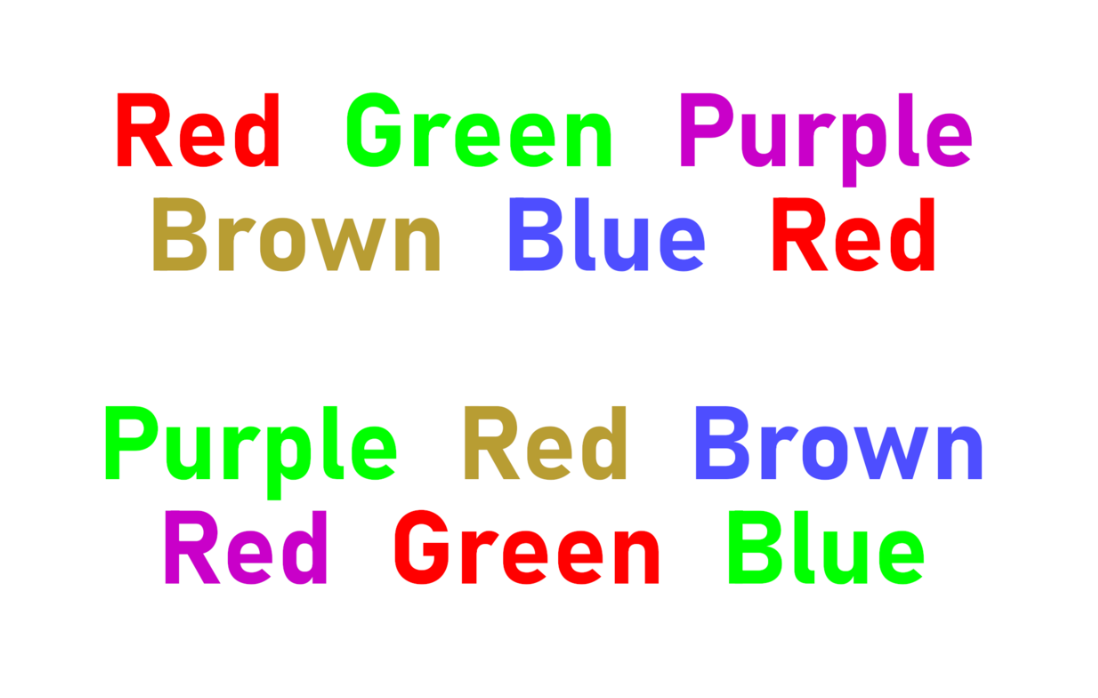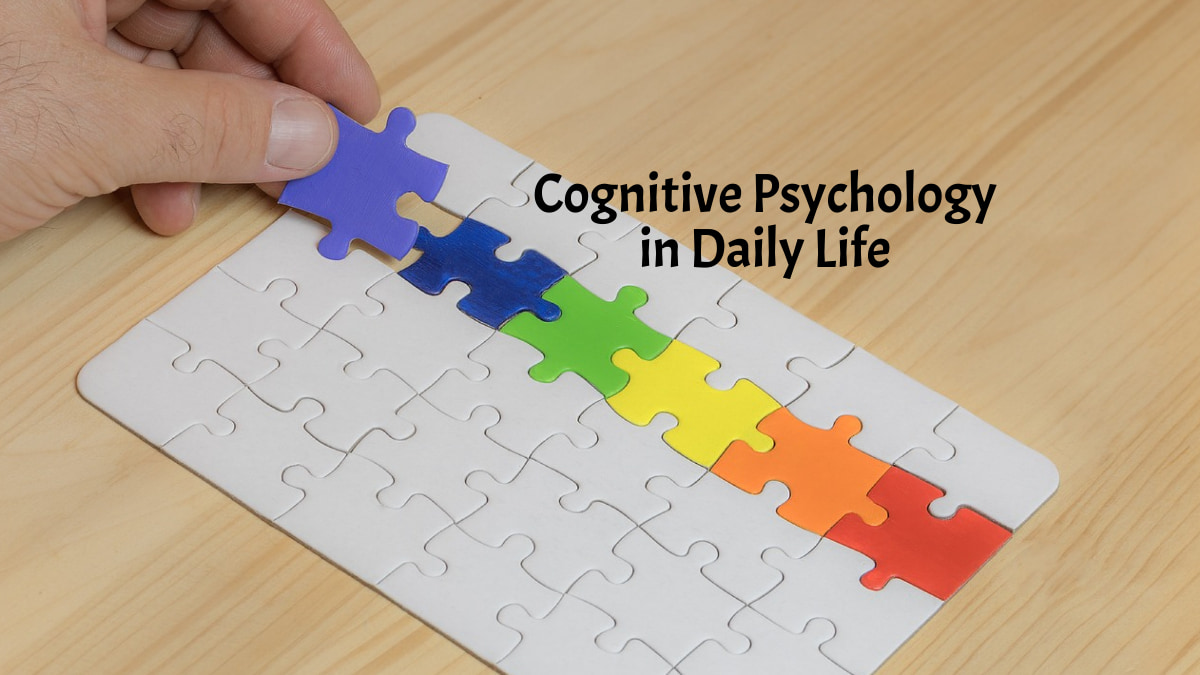Table of Contents
Cognitive psychology is a branch of psychology that focuses on the study of mental processes, including how people perceive, think, remember, and solve problems. It explores the cognitive aspects of human behaviour, such as attention, memory, language, perception, decision-making, and problem-solving.
The key objective of cognitive psychology is to understand the internal mental processes that underlie human cognition. It seeks to uncover how individuals acquire, process, store, and retrieve information from their environment and how these processes influence behaviour.
“The greatest enemy of knowledge is not ignorance, it is the illusion of knowledge.” – Stephen Hawking
Cognitive psychology provides insights into human cognition and behaviour, and its findings have practical applications in various aspects of everyday life. Here are a few examples:
- Learning and Education: Cognitive psychology helps in understanding how individuals learn and retain information. Researchers have identified effective learning strategies such as spaced repetition, and retrieval practice techniques that can enhance learning and memory. This knowledge can be applied in educational settings to optimize teaching methods, curriculum design, and study techniques to promote effective learning.
- Spaced Repetition: Spaced repetition is a learning strategy that involves reviewing and revisiting information at increasing intervals over time. Instead of cramming all the material at once, this technique spreads out study sessions. It takes advantage of the psychological spacing effect, which suggests that information is better retained when it is revisited at spaced intervals.
- Retrieval Practice: Retrieval practice, also known as the testing effect, is a learning strategy that focuses on actively recalling information from memory rather than passively reviewing it. When you attempt to retrieve information from your memory, you strengthen the memory trace and enhance long-term retention. This can be done through self-quizzing, practice tests, or simply trying to recall facts or concepts from memory. Retrieval practice is a powerful way to enhance memory and long-term learning.
- Problem-Solving and Decision-Making: Cognitive psychology explores how people solve problems and make decisions. Understanding cognitive processes involved in problem-solving, such as breaking down complex problems into smaller parts or applying strategies like trial and error or algorithmic thinking, can help individuals improve their problem-solving skills. Similarly, knowledge about decision-making biases and heuristics can aid in making more informed and rational decisions in various contexts, such as personal finance or career choices.
- Cognitive Enhancements and Training: Cognitive psychology research has contributed to the development of interventions and training programs to enhance cognitive abilities. For example, brain training exercises and programs designed to improve memory, attention, and executive functions have been developed. These programs can be beneficial for individuals of different ages, including older adults who wish to maintain cognitive function or students looking to improve their academic performance.
- Advertising and Marketing: Cognitive psychology principles are applied in advertising and marketing strategies to influence consumer behaviour. Understanding how perception, attention, and memory work allows marketers to create effective advertisements that grab attention, communicate messages clearly, and enhance brand recognition. Concepts like priming, framing, and the mere-exposure effect are used to shape consumer perceptions and influence purchasing decisions.
- Human-Computer Interaction: Cognitive psychology plays a crucial role in designing user-friendly and efficient computer interfaces. By understanding cognitive processes such as attention, perception, and memory, designers can create interfaces that reduce cognitive load, improve user engagement, and enhance task performance. For example, the placement of menus, icons, and controls can be optimized to align with users’ mental models and facilitate ease of use.
- Sports Performance: Cognitive psychology contributes to the understanding of how athletes perceive and process information during sports performance. Attentional focus, decision-making under pressure, and anticipation skills are all areas of interest. Coaches and trainers can use this knowledge to develop training programs that enhance athletes’ cognitive abilities, such as improving situational awareness, decision-making speed, and reaction times.
- Artificial Intelligence and Robotics: Cognitive psychology informs the development of intelligent systems, including artificial intelligence and robotics. By modelling human cognition, researchers can design algorithms and systems that mimic cognitive processes, such as natural language understanding, image recognition, and problem-solving. This enables advancements in areas like autonomous vehicles, chatbots, and virtual assistants.
A Famous Experiment on Cognitive Psychology
The Stroop Effect, named after John Ridley Stroop, who first described it in 1935, is a classic experiment in cognitive psychology that demonstrates the interference between automatic and controlled processes. It involves the conflict between the written colour names and the ink colours in which they are presented.

In the Stroop task, participants are typically presented with a list of colour words, such as “red,” “blue,” and “green.” However, these words are printed in ink colours that may or may not match the written word. For example, the word “red” might be printed in blue ink.
Participants are instructed to name the ink colour of each word as quickly and accurately as possible while ignoring the word itself. The main finding is that participants experience interference when the ink colour and the written word mismatch. They are slower and more prone to errors in naming the ink colour when it conflicts with the word’s meaning.
The Stroop Effect occurs because reading is an automatic and well-learned process, whereas naming the ink colour requires controlled attention and suppression of the automatic response. The interference arises from the conflict between these processes, as the automatic response to read the word interferes with the controlled response of naming the ink colour.
The Stroop Effect has been attributed to the brain’s processing of conflicting information, specifically the interference between the word’s semantic meaning and the ink colour. It provides insights into attentional processes, cognitive control, and the automaticity of reading.
The Stroop task has been widely used in research to study various aspects of cognition, including attention, executive functions, and cognitive flexibility. It has also been applied in clinical settings to investigate cognitive impairments in conditions such as attention deficit hyperactivity disorder (ADHD), schizophrenia, and traumatic brain injury.
Overall, the Stroop Effect is a well-known experiment that highlights the complexities of cognitive processes and the potential for interference between automatic and controlled information processing.
Quick Tips to Follow
Here are some quick tips to follow based on cognitive psychology principles:
- Practice Active Listening: Active listening involves giving your full attention when someone is speaking. It includes providing verbal cues such as asking questions or paraphrasing what you’ve heard to show that you are engaged and understanding. Non-verbal cues like maintaining eye contact and nodding also convey your attentiveness. Active listening helps you comprehend information better and fosters effective communication.
- Break Tasks into Smaller Steps: Breaking down complex tasks into smaller, manageable steps helps reduce feelings of overwhelm. It makes it easier to focus on one task at a time, track progress, and stay motivated. This technique is essential for task management and productivity.
- Use Retrieval Practice: Retrieval practice involves actively recalling information from memory rather than passively re-reading or reviewing notes. This practice reinforces learning, enhances memory retention, and improves your ability to recall information when needed.
- Minimize Distractions: Creating an environment with minimal distractions is crucial for concentration and productivity. This can include turning off notifications on your electronic devices, finding a quiet workspace, and structuring your work or study time to minimize interruptions.
- Engage in Regular Physical Exercise: Exercise has numerous cognitive benefits. It can enhance cognitive function, boost mood, reduce stress, and improve overall mental well-being. Incorporating regular physical activity into your routine can positively impact your cognitive abilities.
- Get Sufficient Sleep: Quality sleep is essential for optimal cognitive functioning. During sleep, your brain consolidates memories, processes information, and restores energy. Prioritizing a consistent and adequate sleep schedule is crucial for maintaining cognitive health.
- Practice Mindfulness: Mindfulness techniques, such as deep breathing or meditation, help you focus your attention on the present moment. They reduce stress, enhance self-awareness, and improve your ability to manage your thoughts and emotions.
- Prioritize Reflection: Taking time to reflect on your thoughts, emotions, and experiences promotes self-awareness, personal growth, and learning from your experiences. Journaling or simply setting aside moments for introspection can be helpful in this regard.
- Seek Diverse Perspectives: Actively seeking out and engaging with individuals from diverse backgrounds and viewpoints broadens your understanding of the world. It promotes empathy, cultural awareness, and enhances your ability to think critically and make informed decisions.
- Embrace a Growth Mindset: A growth mindset is the belief that challenges and failures are opportunities for learning and growth. This mindset encourages you to take on new challenges, persevere through difficulties, and develop your skills and abilities over time.
By incorporating these principles into your daily life, you can enhance your cognitive abilities, improve your learning and memory, and foster personal growth and well-being. These tips are based on scientific principles and have the potential to positively impact various aspects of your life.















